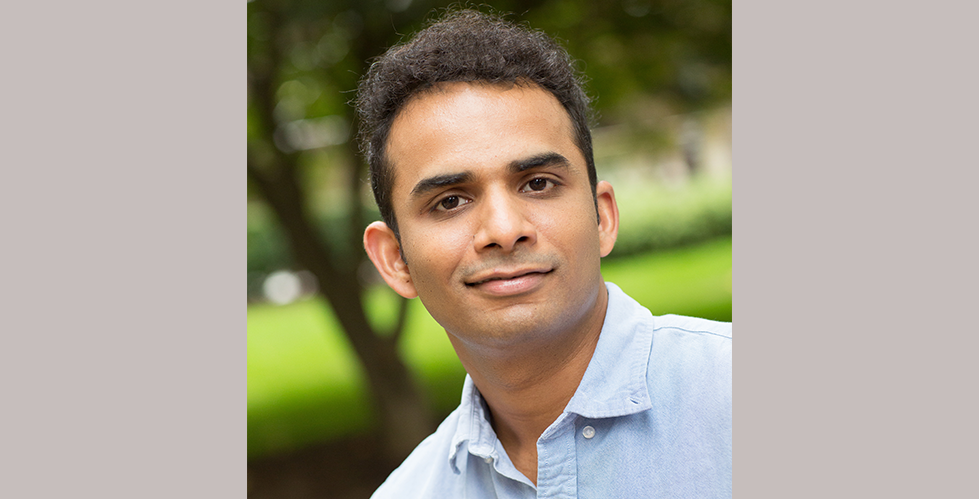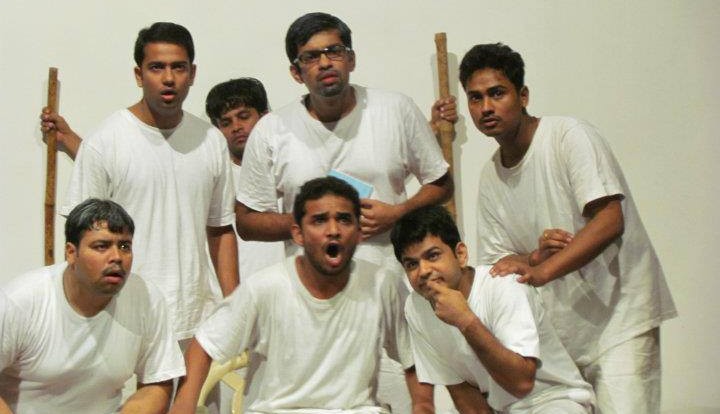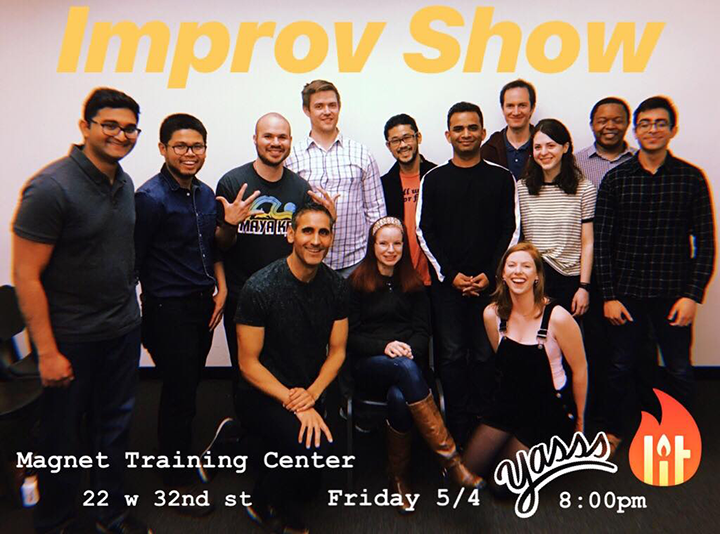Faces of IICD: Sanket Rane, Associate Research Scientist
Faces of IICD is a newly created blog series to allow our members to share more about their career paths and personal stories.

Sanket Rane is an Associate Research Scientist at the Irving Institute for Cancer Dynamics. Sanket is a theoretical immunologist focusing on quantifying the variability in lymphocyte dynamics upon disruption of immune homeostasis in cancer and chronic infections. Sanket earned his PhD in Immunology in 2015 at the National Institute of Immunology (New Delhi, India). He then transitioned into using computational approaches to study lymphocyte ecology during his postdoctoral years. In the latest "Faces of IICD" blog series, Sanket shares how acting and performing improv have considerably influenced his journey in science.
I have always loved acting for as long as I can remember. This isn’t surprising since I come from Mumbai – a city with a rich history of comedy and folk theater and of course the birthplace of Indian cinema. It was not until college that I took acting seriously and started performing in plays at a theater club. A very positive memory is when my club reenacted Nobel Prize discoveries for college functions to depict the life these brilliant scientists led and the challenges they faced. Staying true to their characters and narrating their journey to life-changing discoveries through acting may have planted the seeds of perseverance and resilience in me – two virtues absolutely essential for doing science. I continued my passion for theater in my higher studies and formed an indie theater ensemble during my doctoral years with a group of friends. We named it ‘Antargni,’ which means ‘the fire within’ in Sanskrit, with the intent of performing plays that gave voice to important social issues. We performed at university events and drama festivals across India. Creating and performing in these plays, which were mainly satirical, provided much-needed comic relief from the stresses of PhD life and reprieve from the lab. There is no greater boost than capturing the complete attention of your audience. Those moments, would make me forget that I was a student or a scientist. I was simply the character I was playing.

As I progressed in my academic career, finding time to memorize lines, preparing for a role, and attending rehearsals became extremely challenging. However, I still possessed the passion and thirst to act in live performances. Well, good thing then that I came to the city of dreams – New York! My search for acting and theater led me to this unique art form, improv. Although extremely challenging, improvisational theater does not require the same amount of preparation as scripted acting. Years of practice to assimilate improv skills and excellent chemistry with your team members are all that you need for a good improv show. The most astounding thing about improv is what you create on the stage exists only in that moment, never before and never again. In many ways, improv is very close to real life. It certainly aided me in slowing things down by focusing on important moments and has strongly influenced how I approach science. If you think about it, building an improvised play with your improv partners is somewhat parallel to designing a complex science project. Actors work together to create a story out of thin air based on a word or a theme suggested by the audience; just like scientists collaborate to unravel an unknown phenomenon and its causal structure based on hypotheses and previous observations. In both, the curiosity and cooperation among the performers drive the narrative.
Improv is about thinking on your feet and approaching a situation with the available resources. Everything depends on how well you and your teammates read each other and how well you respond to their choices. Just like real life, there is no script to follow. Doing this repeatedly takes away the fear of the unknown. I personally noticed that this habit translated into my academic life over time. I became less and less anxious about preparing for presentations and meetings. Not worrying about how things would turn out certainly helps in having a clear head in time-sensitive situations, especially during grant or paper writing deadlines.

In improv and acting, you put yourself in a different character. This allows you to think how other people perceive things and empathize with their opinions, which can be helpful for a scientist working in an interdisciplinary area. In improv particularly, one can achieve a high level of chemistry with their scene partners, with everybody anticipating what everyone else will say and how everyone will react. As a theoretician, having these skills and experiences helps in reaching common grounds with experimental collaborators and avoiding any mutual bewilderment that often arises when biology meets mathematics. Similar to acting, dissociating yourself as a writer helps you think about your target audience clearly and makes you a better science communicator. Improv has undoubtedly taught me how to be more versatile and empathic to the needs of different audiences.
Overall, acting and improv have considerably influenced my journey in science. The scientist and the actor are two complementary aspects of my life. One cannot exist without the other. My colleagues and my postdoctoral mentor (Andrew Yates) supported me very strongly through this journey by regularly attending shows and occasionally laughing while doing that. Seeing friendly faces in the audience helps a lot! As they say, bombing in front of friends is funnier than doing a great set in front of strangers. In the end, I cannot emphasize enough how important it is for scientists to take up improv or some artistic hobby and to constantly put themselves out of their comfort zone. Improv, for instance, can be a great way to explore outside the scientific community and meet new people with diverse backgrounds, skills, and experiences. It wouldn’t be an understatement to say that some of my interesting scientific ideas have come from the interactions and conversations with genuinely intriguing and authentically kind people I have met through improv and theater.
